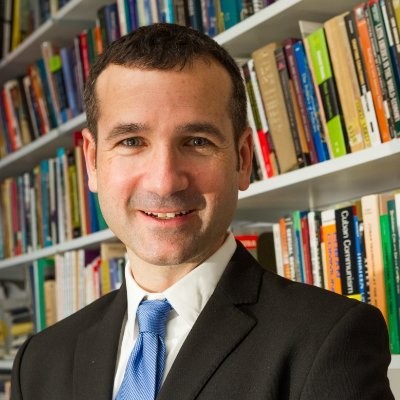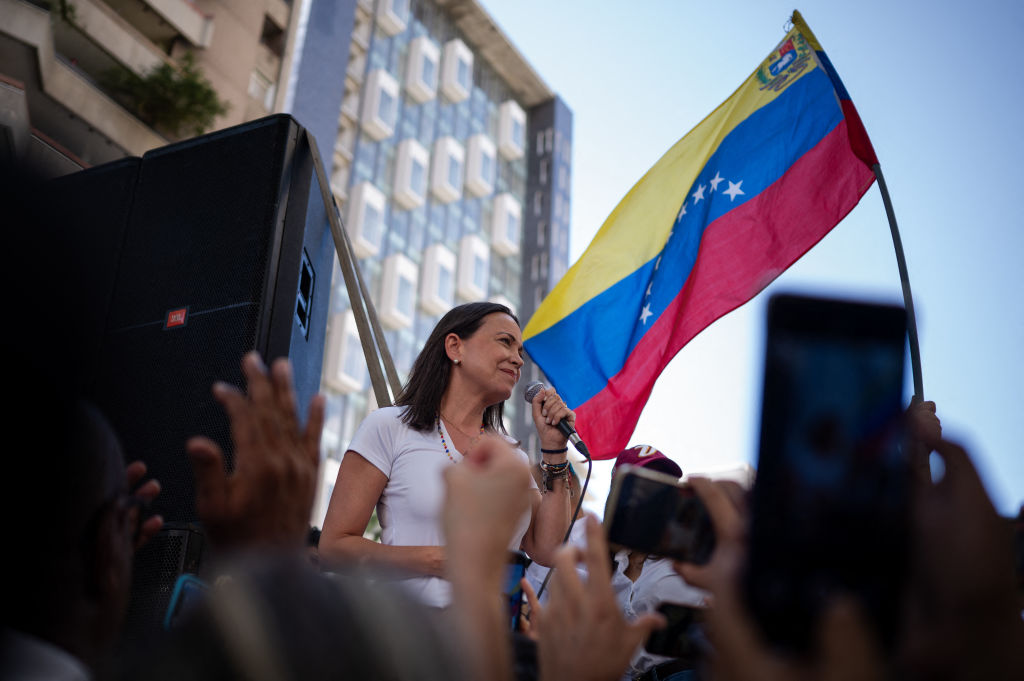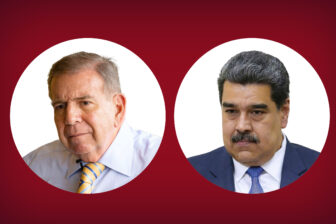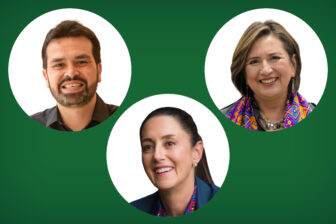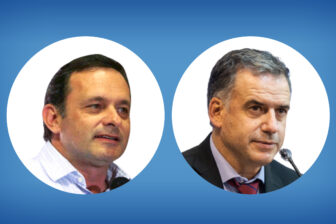Lee este artículo en español.
Months after signing an overarching political agreement in Barbados that set the stage for free and fair presidential elections in Venezuela this year, the government and the opposition are once more at odds. Nicolás Maduro’s regime is flagrantly moving away from the deal reached last October, leaving the opposition, under the leadership of María Corina Machado, with limited options. In the run-up to the unreasonable deadline to register candidates on March 25, the opposition may take a page from an unlikely figure’s playbook: Juan Domingo Perón in 1973.
As talks between opposition leaders in Caracas move into high gear, they have a narrow path with few choices to ensure a successful transition to democracy. The first option is to ignore the alleged disqualification of María Corina Machado and barrel ahead. Machado could pretend that there is no ban, or that the government will be unable to enforce it. The problem with this plan, other than placing Machado’s name on the ballot against the government’s wishes, is that it gives Maduro a coveted gift: an easy excuse to claim victory by simply saying that all votes for Machado are invalid. In addition, this option would likely split the opposition, which is another gift for Maduro.
The alternative is for the opposition to select a candidate other than Machado. This, too, would be risky. Her approval ratings are the highest among opposition leaders and many Machado voters won’t feel represented. This alternative would give Maduro another advantage: an opposition candidate with weak appeal.
The third option is for Machado to choose a proxy candidate. This, no doubt, seems unappealing to Machado now. A candidate as far ahead in the polls as Machado is would have a hard time stepping aside, and some of her followers may find it disappointing to go with something other than their first choice. History shows that in Latin America, many candidates who are banned from running for office (typically, ex-presidents who face legal troubles or whose country’s constitutions impede them from running) choose proxy candidates, and this choice often backfires. In Ecuador, ex-President Rafael Correa’s proxy candidates have lost two presidential elections in a row. And when proxy candidates win, they can turn against their former mentors (Luis Arce in Bolivia, Juan Manuel Santos in Colombia).
Yet, there are times when proxy candidates do work. Those discussing the future of Venezuela may use events that took place five decades ago as a blueprint for democratization.
Perón’s moment
In the context of authoritarian regimes, the most famous example of proxy candidates helping to democratize was Argentina’s Juan Domingo Perón in 1973. The military junta back then was willing to allow democratic elections but with one condition: banning the highly popular Perón. His solution was to endorse a proxy candidate, Héctor Cámpora.
Running at the time for the Frente Justicialista de Liberación, Cámpora won the March 1973 election with 49.6% of the vote. He took office in May, allowed Perón to return to Argentina, and in less than two months, resigned to allow new, more democratic elections in which Perón could run. Perón was elected president in September 1973.
The Venezuelan opposition faces a similar moment today. Machado is so popular that any person she selects will likely win—as long as it is not one of the establishment politicians.
The difference between the Perón and Machado cases is that the military junta allowed Perón’s proxy candidate to compete. There is reason to think that Maduro will ban whoever Machado picks. This plan is not without risks, but given the futility of other options, it is a move worth thinking about.
The Barbados accord was supposed to be a two-level game changer that would reintroduce hope for democracy at the domestic level and reincorporate Venezuelan oil into Western markets. But recent events are proving everybody wrong as Maduro’s regime has embraced a new calculus.
In January, the dictatorship upheld bans on Henrique Capriles and María Corina Machado, obliterating the two most influential leaders of the opposition, and early last month resorted to arresting Rocío San Miguel, a high-profile human rights activist and expert on military affairs, intensifying a crackdown on civil society in what is already a well-established terror state. Shortly after, the government also expelled the Venezuelan branch of the UN Office of the High Commissioner for Human Rights (OHCHR).
The most generous interpretation of what happened to Maduro is that he experienced an Amazon-return moment. Like many shoppers on Amazon, the regime became interested in buying a new item in 2023 (good relations with the U.S.), toying with the idea for many months (keeping the item in the shopping cart while negotiations went back and forth between Maduro and the U.S.). Finally, the regime decided to place the order (the Barbados agreement), with the hope of receiving cashback (sanctions relief). The government tried the new product and allowed the opposition to conduct primaries. And then, suddenly, the regime changed its mind. The government decided it didn’t like what it purchased, a classic case of buyer’s remorse.
Why did the Maduro regime regret its purchase only a few weeks after placing the order? The reason is that the primaries yielded the result that the government least wanted: Machado won with 93%, and the vote signaled unity rather than a split within the opposition. This outcome made the government’s dream scenario for a presidential election, competing against a divided opposition, impossible.
A new dilemma
Now the government is defying the spirit of the U.S.-brokered deal—and the goodwill of Norway and EU nations that had hoped for a final breakthrough—risking the re-imposition of economic sanctions. But as Vice President Delcy Rodríguez said a few days ago, Venezuela is “prepared to live” without sanctions relief, meaning the regime prefers to live in poverty rather than in a democracy, in repression and manipulation rather than under free and fair elections, and would rather rely on narco-money than on Western aid.
The government’s stance is putting the opposition in a new dilemma. When a government tries to disqualify presidential candidates without due process, it destroys democracy. The best alternative for the opposition is not to deny the obvious and pretend that the will of the people—or the people’s top candidate—will somehow prevail.
Instead, the best alternative is to try to outsmart the government. Proxy candidates, under certain conditions, can do the trick as long as they don’t come with too much baggage and have the full endorsement of the country’s favorite politician. They are risky, no doubt, but less so than giving the dictatorship easy excuses not to count votes.
Subscribe to the Americas Quarterly Podcast on Apple, Spotify and other platforms
Corrales is Dwight W. Morrow 1895 Professor of Political Science at Amherst College. His latest book, Autocracy Rising, was published in 2023.

